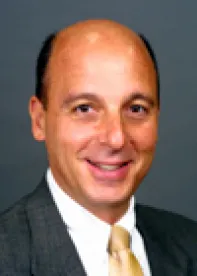In Comcast Corp. v. Behrend, Case No. 11-864, the Supreme Court granted certiorari this week to determine “whether a district court may certify a class action without resolving whether the plaintiff has introduced admissible evidence, including expert testimony, to show that the case is susceptible to awarding damages on a class-wide basis.” The issue is whether Daubert v. Merrill Dow Pharmaceuticals, Inc., 509 U.S. 579 (1993), applies at the class certification stage, or, as the majority concluded, the District court need only evaluate whether the expert is presenting a damages model which is plausible and could evolve to become admissible evidence. Behrend v. Comcast Corp., 655 F.3d 182 at 204 n. 13 (3d Cir. 2011).
Behrend is an antitrust case involving alleged violations of Sherman 1 and Sherman 2. The District Court (E.D.Pa.) certified a class. The class certification order was affirmed by a majority decision of the Third Circuit Court of Appeals. Although the majority reviewed the District Court’s “rigorous” analysis of Plaintiffs’ damages model and concluded that “Plaintiffs have provided a common methodology to measure and quantify damages on a class-wide basis,” it did not find that the model was admissible under Daubert, and specifically rejected Comcast’s arguments, which it described as “attacks on the merits of the ethodology that have no place in the class certification inquiry,” id. at 207:
[A]lthough the Supreme Court recently hinted that Daubert may apply for evaluating expert testimony at the class certification stage,1 it need not turn class certification into a mini-trial. [Dukes], 131 S.Ct. at 2553-54. We understand the Court’s observation to require a district court to evaluate whether an expert is presenting a model which could evolve to become admissible evidence, and not requiring a district court to determine if a model is perfect at the certification stage. This is consistent with our jurisprudence which requires that at the class certification stage, we evaluate expert models to determine whether the theory of proof is plausible. Hydrogen Peroxide, 552 F.3d at 324. ‘[I]f such impact is plausible in theory, it is also susceptible to proof at trial through available evidence common to the class. When the later issue is genuinely disputed, the district court must resolve it after considering all relevant evidence.’ Id. at 325. When plaintiffs present multiple models created by expert witnesses that can show common evidence and those models are based on data, a district court does not have to determine which model should be used at the time of class certification. Linerboard, 305 F.3d at 155. Here, the District Court likely determined that [Plaintiffs’ expert’s] model could be refined between the time when class certification was granted and trial so as to comply with Daubert.
655 F.3d 204 n. 13.
The concurrence-dissent argued that plaintiff’s expert’s opinion is irrelevant and would be inadmissible at trial under Federal Rule of Evidence 702 and Daubert and therefore cannot support a finding that damages for the antitrust violations at issue can be awarded on a class-wide basis:
[Plaintiff’s expert’s] opinion fails the requirement [that the testimony fit the particular case] because it is disconnected from Plaintiff’s only viable theory of antitrust impact, i.e., reduced overbuilding, and thus the proffered expert testimony cannot help the jury determine whether reduced overbuilding caused damages. It was, consequently, an abuse of discretion for the District Court to consider [Plaintiffs’ expert’s] opinion as demonstrating that damages could be proven using evidence common to the class.
Id. at 216.
Given the Supreme Court’s dictum in Dukes and the requirement that a class action plaintiff prove each element of Rule 23 by a preponderance of the evidence, the Supreme Court should reverse and remand the case for a determination of whether Plaintiffs’ expert’s opinion would be admissible under Daubert.
1In Dukes, the Supreme Court expressed “doubt” with the District Court’s conclusion that Daubert did not apply to expert testimony at the certification stage of class action proceedings. Id.


 />i
/>i
